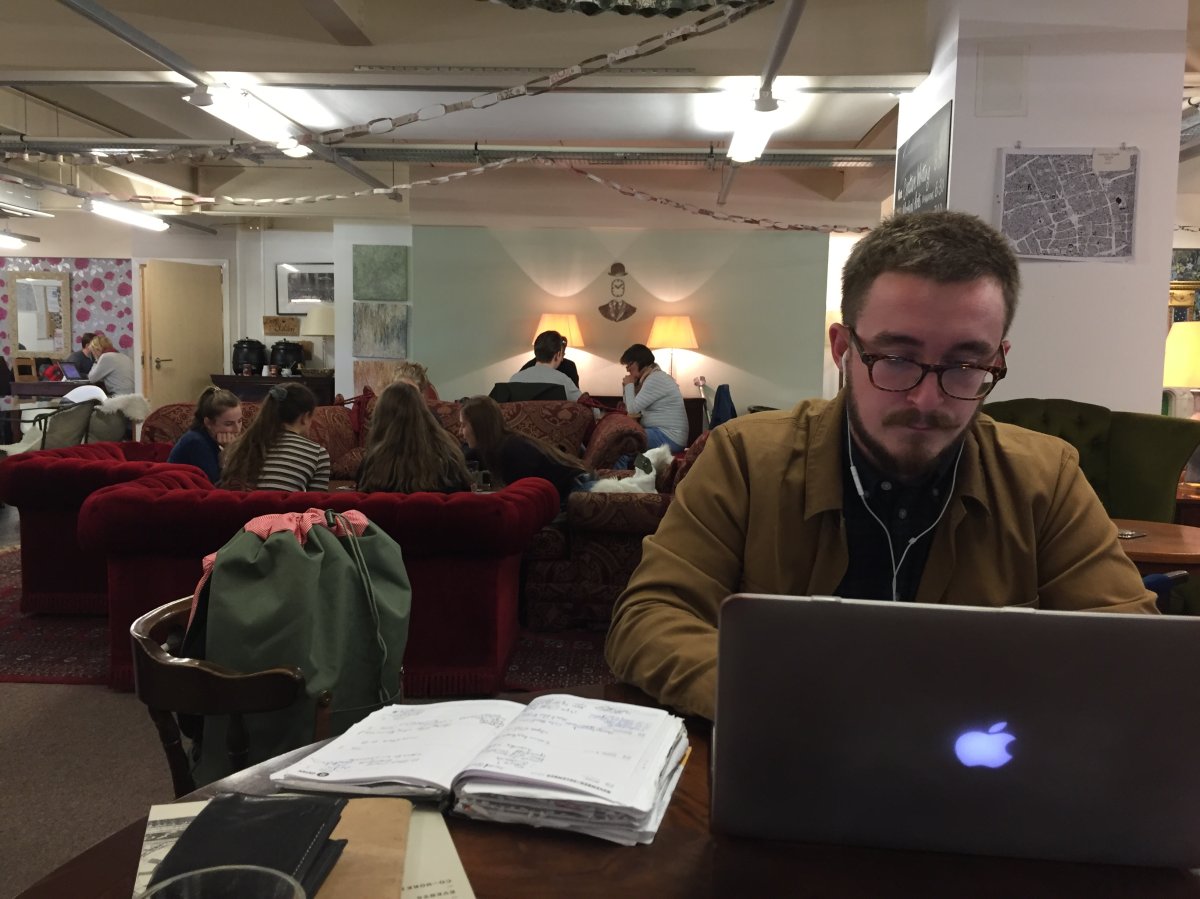On a Monday afternoon, the narrow street outside the Ziferblat cafe is quiet; but inside, the 6,000-square-foot coffee shop is packed with dozens of customers.

The cafe first opened in Manchester, England in 2014, and now serves around 12,000 customers per month. Part of its recipe for success: all of the cafe’s food, drinks and 100 MB of wifi are free.
“When we first opened this, we were terrified,” recalls Ben Davies, the cafe’s marketing manager. “But I think this is something that isn’t currently provided.”
Here’s the catch: The cafe’s name, Ziferblat, is Russian for “clock face.”
Ziferblat’s customers only pay for the time they spend: six pence, or around 10 Canadian cents, per minute.
READ MORE: Addicted to coffee? Your DNA may be to blame, study suggests
They check-in and check-out, like a hotel. And during their stay, customers can eat and drink as much they like.
An array of fresh, locally-baked cakes, cookies and sandwiches are spread across a table buffet-style. There’s also tea, espresso and coffee machines, and customers are encouraged to help themselves.
“We have had some people who come in here with a spoon and eat two full chocolate fudge cakes. But generally they’re few and far between. And normally they don’t come back,” Davies laughs.
He says their average customer spends 83 minutes here. And most consume far less than you might expect.
“The fact that you have the free choice makes you not want to ‘take the mick,’ or take the entire jar of biscuits,” says customer Luke Halliwell, while sipping a latte and playing a board game with a friend.
“I just have a few (biscuits), because I’m here to relax and enjoy my time.”
Ziferblat’s real secret to success isn’t the customers who play cards or catch-up with friends; it’s the people who come here to work.
Web designer Mark Butler’s head is buried in his laptop. He comes here five days a week; He used to work from home, he says, but “you get cabin fever and you miss human contact.”
So he tried working in traditional cafes; “In a coffee shop you tend to get that vibe where the staff, after half an hour, are glaring at you, waiting for you to buy something else. Whereas it’s a lot more relaxed here. And the wifi is better.”
READ MORE: Caffeine doesn’t tamper with heartbeat, study suggests
Unlike some coffee shops, Ziferplat has no minimum spend. And once you’ve paid for five hours, the rest of the day is free.
In the United Kingdom, around 16 per cent of workers are self-employed. In Canada, freelancers represent around 10 per cent of the workforce. And the number continues to rise.
“You see a lot of people working freelance nowadays,” says Davies, who estimates that half their business comes from customers who use it as an office.
“We’re trying to solve that coffee shop office problem. And people do treat us like a co-working space.”
And that “coffee office” — or “coffice” — business is booming. The Ziferblat cafe is now opening branches throughout the U.K. And the business model is being adopted across Europe and North America, feeding the growing appetite from self-employed workers.

















Comments